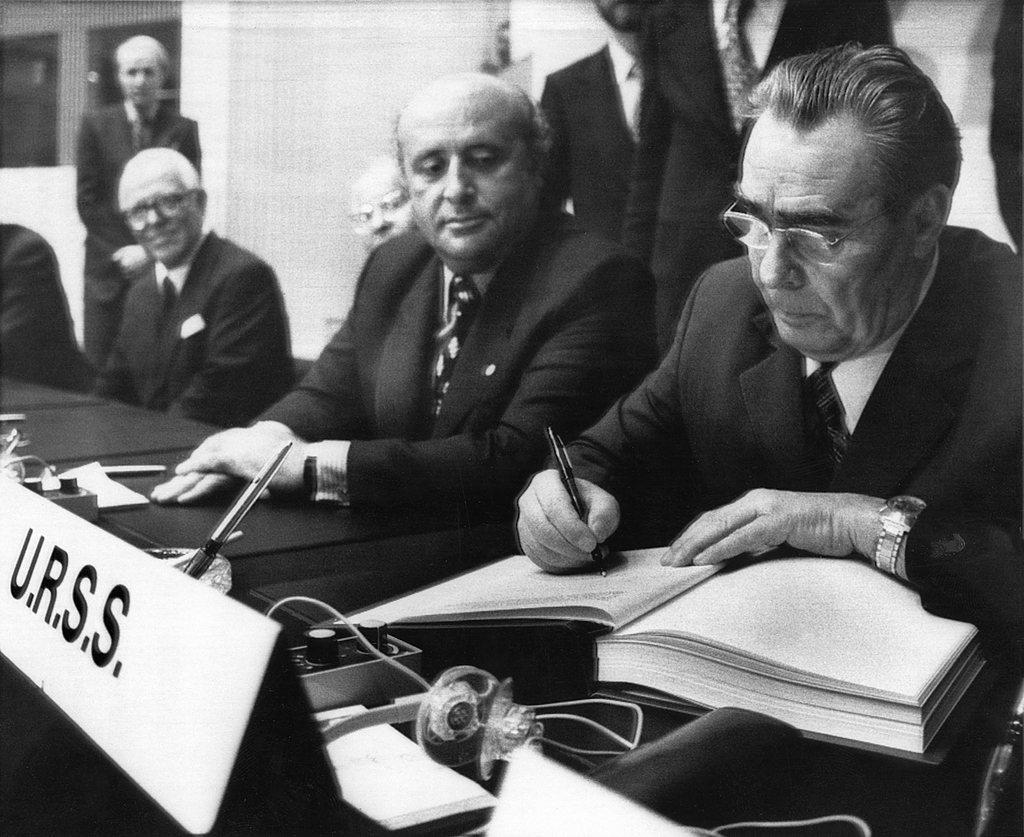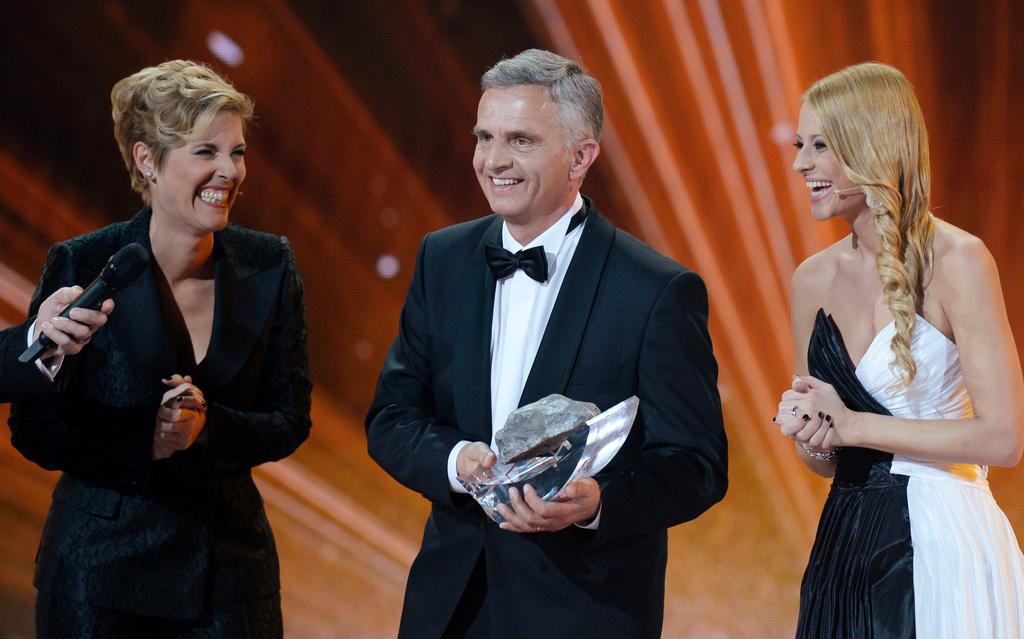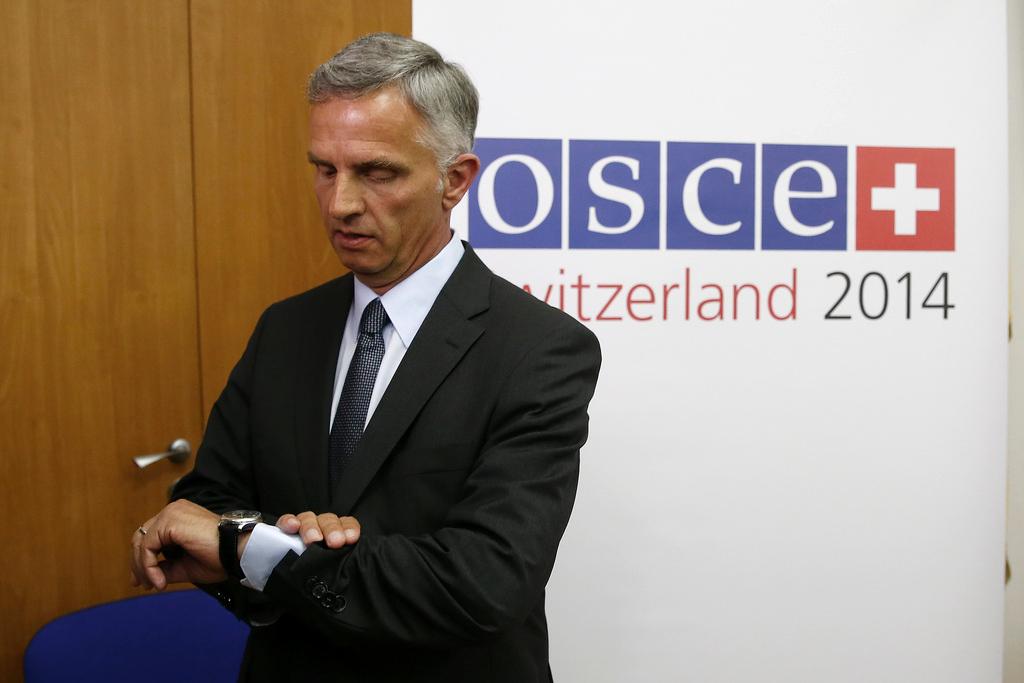Foreign minister warns of fresh Europe split

More high-level dialogue is necessary in Europe to avoid new divisions, Swiss Foreign Minister Didier Burkhalter has warned at a meeting to honour the 1975 Helsinki accord, seen as a milestone in reducing tensions between the West and East during the Cold War.
He was speaking on Friday as representatives of the Organization for Security and Co-operation in Europe (OSCE) External linkparticipating states gathered in the Finlandia Hall in Helsinki, where the Helsinki Final Act was signed.
Burkhalter was widely praised both at home and abroad for his work during his co-presidency of the OSCE last year, which included mediation in the conflict between Russia and Ukraine.
“The past 15 years have seen a decline in trust and a strategic estrangement. The Ukraine crisis has finally brought this broader crisis of European security to a head. Just about all Helsinki Principles have been grossly violated, including those concerning Ukraine’s territorial integrity, the inviolability of its borders, the non-use of force, and non-intervention in internal affairs,” Burkhalter said.
“Forty years after the Final Act and 25 years after the Paris Charter, we owe it to the coming generations to prevent our continent from becoming divided again,” he said, according to the text of his speech released by the Swiss foreign ministry.External link
Cold War times
The Helsinki Final Act External linkwas signed at the conclusion of the first Conference on Security and Co-operation in Europe (now the OSCE) on August 1, 1975 in the midst of the Cold War. The agreement was signed by 35 countries, including the superpowers of the time, the United States and the Soviet Union. It also facilitated a meeting between the heads of a divided Germany.
The non-binding accord recognised the inviolability of the post-Second World War borders in Europe and called for the respect of human rights and fundamental freedoms.
Burkhalter said that in 2015 he saw no need for new rules, but a dialogue should be conducted on “how to foster a common understanding of the Helsinki Principles”
“We should also discuss the underlying causes of the current crisis and avoid simple blame games,” he continued. “This discussion will have to include the question of whether we all still share the commitments made over the past four decades. Restoring confidence and rebuilding bridges can work if all sides want it to, and if all sides are willing to allow for – and engage in – high-level dialogue.”
On Thursday, 96 attendees representing more than 50 countries at the Helsinki commemoration event condemned Russia’s actions in Crimea and Ukraine.External link Seven opposed the motion and 32 abstained. They also adopted an updated 2015 Helsinki Declaration.External link
Moscow denies claims by the West and Ukraine that it is supporting rebels fighting against the government in the east of Ukraine.
Russia was absent from the 40th anniversary meeting in the Finnish capital as its delegates were denied visas in line with the European Union’s travel bans for Russia’s actions in the Ukraine crisis.

In compliance with the JTI standards
More: SWI swissinfo.ch certified by the Journalism Trust Initiative


You can find an overview of ongoing debates with our journalists here. Please join us!
If you want to start a conversation about a topic raised in this article or want to report factual errors, email us at english@swissinfo.ch.